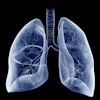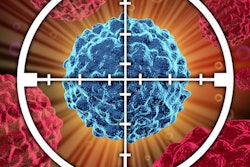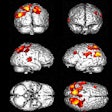African American men with metastatic castrate-resistant prostate cancer (mCRPC) appear to respond more favorably than white men to treatment with radium-223 (Ra-223) dichloride, according to a study presented at RSNA.
Researchers at the University of Mississippi noted the findings are “paradoxical” and call for further studies, given that African American men face more significant barriers to care.
“The improved overall survival is likely due to a protective factor for African Americans that is likely secondary to biological and genetic factors despite increasing health challenges,” wrote lead author Johnny Yang, a medical student, and colleagues in a December 3 presentation.
Prostate cancer is the second leading cause of cancer-related death and the most common cancer diagnosis for men in the U.S., with the incidence of disease among African American men approximately 70% higher than in Caucasian men. Radium-223 dichloride (Ra-223, Xofigo) is a theranostic agent for treating patients with mCRPC with bone metastases and no visceral metastases.
The state of Mississippi struggles with various health metrics and has one of the worst cancer survival rates in the country, the researchers noted. When stratified by race, studies have shown that one of the many risk factors contributing to poor outcomes is social determinants of health (SDOH). However, no studies have explored the interplay between race and SDOH in men in Mississippi receiving treatment with Ra-223.
To address the knowledge gap, the group performed a chart review and elucidated patient characteristics, staging, imaging characteristics, and SDOH variables that could affect patient outcomes for nine patients (6 African Americans, 3 Caucasians) treated with Ra-223 at their center. The primary SDOH variables were race, the average income of the city of residence, healthcare access, and distances traveled for treatments, while outcomes included overall survival and treatment-related morbidity.
According to the analysis, key findings included the following:
- 66.7% of African Americans and 50% of Caucasians travel greater than 50 miles for treatments (p = 0.635).
- 66.7% of African Americans and 33.3% of Caucasians reside in cities with an average salary of less than $35,000 (p = 0.343).
- Caucasian patients exhibit more treatment-related complications than African Americans (66.7% vs. 33.3%), but African Americans were diagnosed with anemia at higher rates (100% vs. 16.7%, p = 0.018).
- All patients had healthcare insurance and all patients achieved pain palliation.
Finally, even with anemia as a more frequent complication, after treatment with Ra-223, African Americans had an overall median survival time of 14 months compared to 11 months for Caucasians (p = 0.359), the researchers reported.
“The underlying etiology for the paradoxical findings challenges existing assumptions,” the group wrote.
Ultimately, this was an interim initial observational study and limited by the number of patients with favorable treatment responses, yet the findings suggest that despite healthcare disparities, the disease burden is better for African Americans than for Caucasians after receiving Ra-223 therapy, the researchers wrote.
“Further follow-up to confirm the findings in a larger patient population is necessary,” they concluded.




















